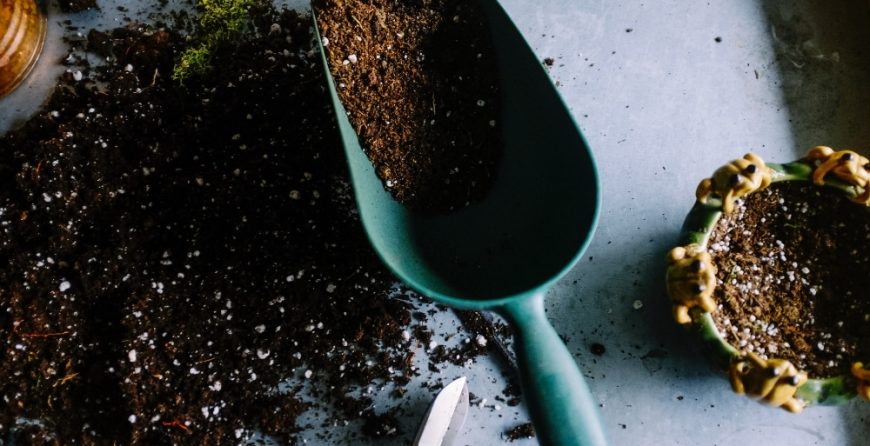If your organic plants and shrubs are struggling to grow, it’s time to take a closer look at your soil. Many soil problems can throw your garden off track, but the good news is there are plenty of things you can do to get right back on!
When your garden struggles to thrive just remember that you don’t have to panic. All soil can be saved, it’s just a matter of taking the right steps to correct the issue.
Here are five of the most common soil problems Iowa gardeners face and what you can do to correct them when you find yourself in that situation.
1.Soil that’s too try
Do your crop beds drain and dry out too fast? Now would be a great time to add some organic compost.
Compost will add nutrients back into the soil while increasing its water-retention capacity. For the best results, put a 3- to 6-inch layer of decomposed, organic material on the ground that needs to be amended.
Pro tip: Use mature compost since compost that hasn’t been fully decomposed can prevent your plants from getting all the nutrients they need.
2.Soil that’s too wet
On the other hand, soil that’s compacted and soggy needs to have space between the particles to increase drainage. If you’re new to organic gardening, the practice of achieving the right soil composition may feel like a balancing act, but patience is the key.
Combat compacted soil by adding gravel or sand to the mix. You should also boost the nutrient content.
Are you in a hurry to encourage soil drainage? Try using raised beds in addition to the soil amendments. Then, abide by the following tips:
- Don’t work the soil when it’s wet
- Avoid excessively working dense clay soil
3.Alkaline soil
Did your soil test show a high pH level? Your crops will benefit from having a balance if that’s the case. Add worm castings to your soil to drop the pH level. Not only are worm castings completely organic, but they’re an excellent source for phosphorus and nitrogen. Don’t worry about applying too much as castings will not burn your plants.
Keep in mind that alkaline soils need amendments from time to time, so be sure to complete a soil test at least every other year.
4.Soil that lacks organic matter
If your crops begin to fail and water retention becomes a problem, then your soil may lack organic matter. To combat this issue, spread a 3-inch-deep layer of organic compost onto your soil. Once again, add fully decomposed compost to prevent the decomposition process from taking away the nutrients your crops need.
5.Soil with excess salt
When you step into your garden, do you notice white salt crystals forming on the top of your soil? Excessive amounts of soluble salts may be the culprit. Grab an electrical conductivity meter at your nearest cooperative or soil-testing lab to confirm the salinity of your soil.
You may also notice poor drainage in soil that has excess salt. If this is happening in your organic garden, you can improve the soil by adding:
- Compost
- Sand
- Pea gravel
Conclusion
Soil problems can plague any organic gardener in Iowa. The trick is to pay attention to how your soil acts and what your crops begin to show. Taking the steps listed above will help you maintain optimal levels of soil moisture, nutrients, drainage, and more.


